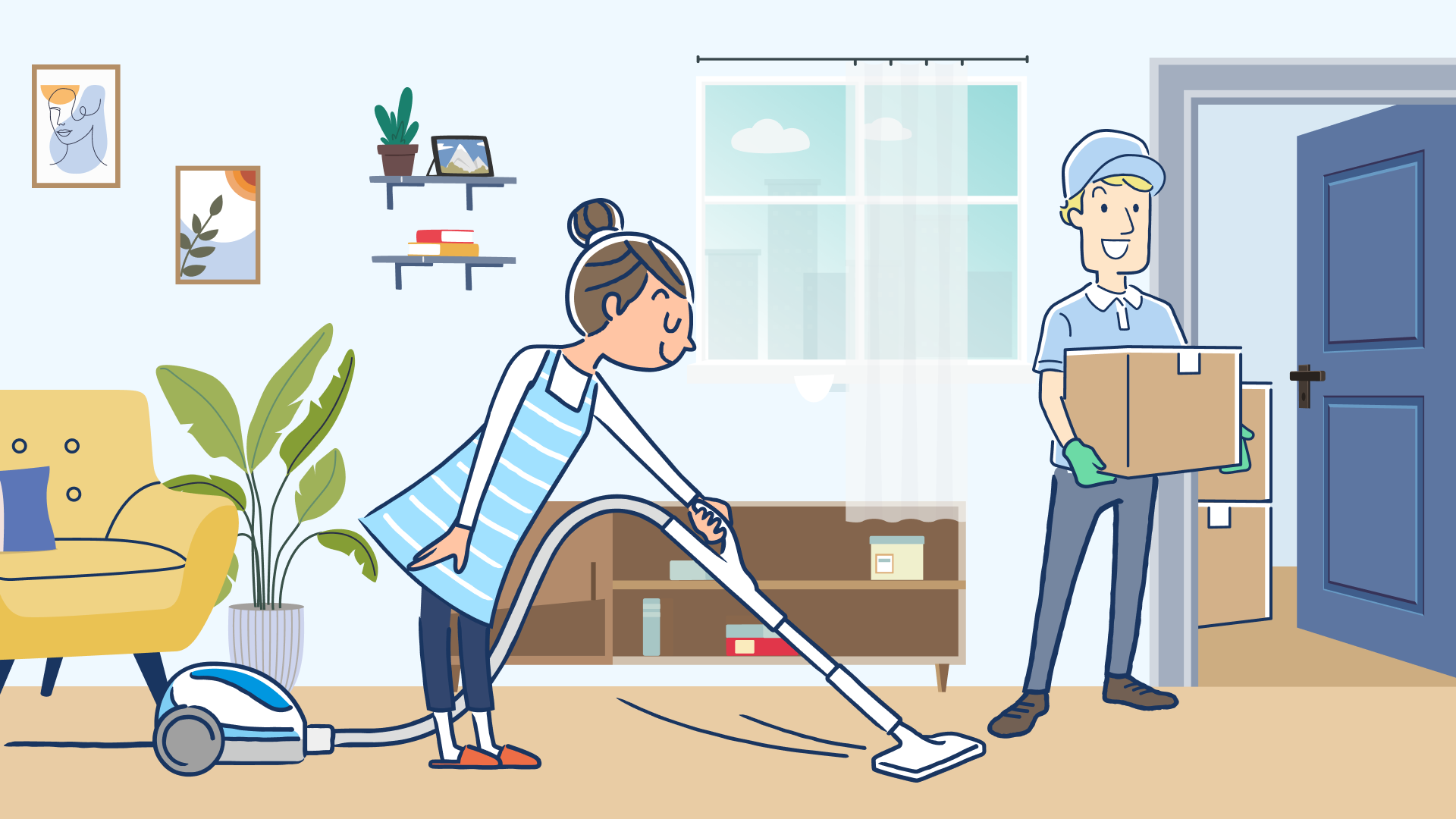Time to read : 4 Minutes
With the cost of living on the rise, finding ways to boost your income has become a priority for many of us. One viable option for homeowners is renting out a spare room, either on a short-term or long-term basis.
I spoke with a small business owner, Cassie, living in a two bedroom Sydney apartment. Note that Sydney was ranked last year as the 10th most expensive city to live in.
Cassie managed her mortgage fine after her divorce, until interest rates started to rise. Her little pile of emergency funds began to shrink.
Keen for ways to supplement her finances, she gave serious thought to renting her spare room. The room was only ever used to host friends and the occasional relative. Could it now help boost her income stream?
Identifying the benefits of renting out a room
Cassie started by listing some of the benefits of letting her spare room. Here’s what she discovered:
1. Extra Income
The most obvious and immediate benefit would be financial. Renting her spare room for $200 a week could bring in more than $10,000 a year. Her plan was to set up an offset account but she could also save for renovations, or simply make her day-to-day expenses more manageable.
2. Tax Benefits
Renting might allow Cassie to claim some tax deductions for expenses like utilities, repairs, and maintenance. But, she would need to declare her rental income to claim these. This is where a tax advisor could help Cassie to understand the tax implications.
3. Shared Living Costs
A tenant might help with some of Cassie’s utility costs if they’re staying more than a couple of weeks. This can include her internet and other household expenses, reducing her living costs.
Beyond finances, a good tenant can pitch in with household tasks. For instance, her tenant might look after her plants or pets while she’s away. It also means her apartment doesn’t stand empty as a target for vandals or thieves.
4. Social Benefits
Living alone can feel isolating, but renting a room can offer Cassie some companionship. However, compatibility is key.
But then again, Cassie sometimes likes her own space. Would she like to have the tranquillity of living solo more than stressing about covering all her (rising) bills each month?
It was worth taking some time to weigh up her pros and cons and to decide whether she’d be better off with a short-term tenant like the usual AirBnB booking, or a longer-term arrangement.
There are a few challenges Cassie had to consider, such as:
1. Privacy
Sharing her space means she’ll have to adjust to having less privacy. Her home will no longer be her exclusive sanctuary.
2. Landlording – do you need a lease?
Being a landlord comes with legal obligations, even if you’re just renting out a room in your own home. If Cassie opts for a longer-term tenant, she’ll need a written lease agreement. Depending on the state she lives in, she might also need to secure her tenant's bond through the appropriate residential tenancy authority.
3. Legal and tax rules
Cassie also needs to consider her tax implications. Her rental income might push her into a higher tax bracket, potentially reducing any financial benefits.
Also, renting out part of her home can affect her main residence exemption, meaning she might owe Capital Gains Tax (CGT) on part of the property when – or if – she sells. Again, a chat with a tax advisor is essential.
Important: you may have heard about Victoria’s AirBnB levy. This 7.5% tax is added on to most short term rental bookings made in the state – and it takes effect from 1 January 2025. However, it does not currently apply to spaces rented out in your own home.
4. Insurance
Not all home and contents insurance policies cover partial tenancy arrangements and landlord’s insurance is a separate policy entirely.
Cassie would need to review her current home insurance to ensure it covers her for this (if possible) and any potential property damage caused by her tenant.
She might have to upgrade her policy, which could add to her expenses. There are policies that you can get for AirBnB-style short-term rentals, but read their terms and conditions with care. Not all of them cover properties where the owner also resides.
What if it doesn’t work out?
Excellent point – and why any arrangement lasting longer than a week or two is better off with a proper rental agreement (see point 2 above). Without a bond, Cassie might have to cover any repair costs caused by her tenant.
Important: it’s difficult to vet anyone and check references yourself, which is why most people offering long-term rental homes use managing agents for investment properties.
Bottom line
For homeowners like Cassie, renting out the spare room can be a great way to supplement income during tough economic times. But, the decision required some careful planning and a few seriously important conversations with her tax advisor (in her case, an accountant).
It’s important to:
Understand how any rental income affects your taxes and future Capital Gains Tax (CGT) liabilities.
Check your insurance policies and switch, or upgrade, if needed.
Prioritise compatibility and reliability of tenants to avoid future headaches.
While it won’t suit everyone, with the right approach, renting out your spare room could turn unused space into a valuable asset. Who knows? Like my friend Cassie, you might even find that the extra income and companionship could make the experience worth every cent.
Go deeper:
Financial disclaimer
The information contained on this web page is of general nature only and has been prepared without taking into consideration your objectives, needs and financial situation. You should check with a financial professional before making any decisions. Any opinions expressed within an article are those of the author and do not specifically reflect the views of Compare Club Australia Pty Ltd.
